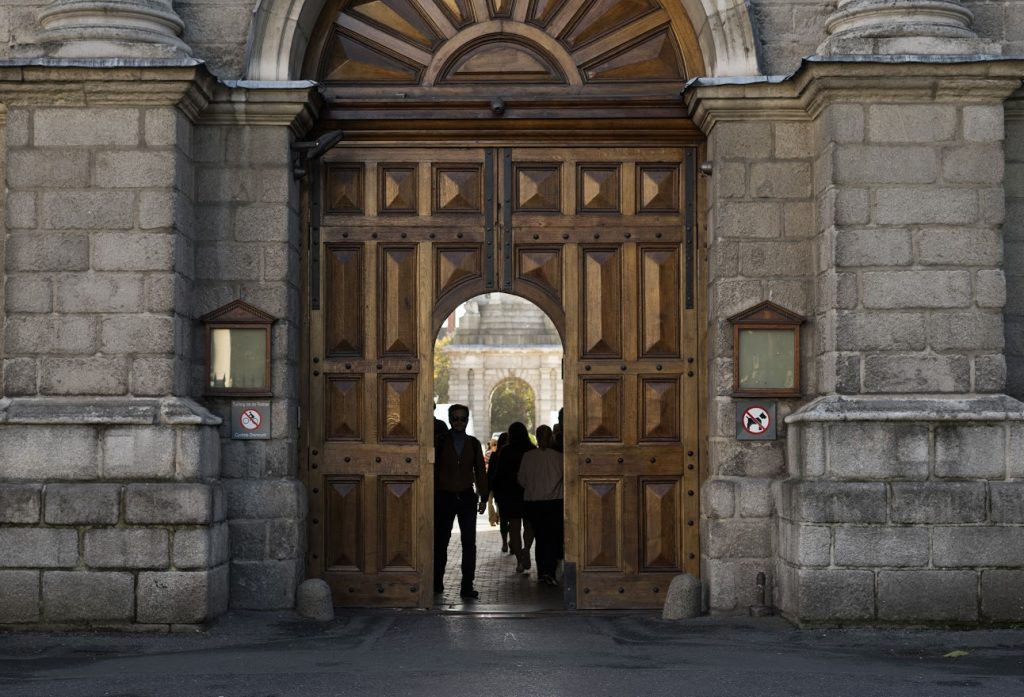The Trinity Education Project (TEP) is a highly aspirational ideal of education reform for the College – possibly even more radical than the semi-semesterisation model introduced in 2010. Its aim to reduce the amount of assessments for students in order to move away from over-focusing on exams makes a lot of sense; its idea to imbue in students “attributes” that will stand to them after graduation is a good idea – it could only be beneficial for Trinity graduates if employers associated certain qualities or attitudes with them.
“There were always going to be teething problems with TEP, but had the College listened to students’ concerns, many could have been avoided.”
However, TEP’s rollout this year has gotten off to a rocky start, and students have been vociferous in their objections. As reported by Trinity News, an open letter to the Provost was circulated among students demanding changes.
There were always going to be teething problems with TEP, but had the College listened to students’ concerns, many could have been avoided. In particular, the assessment deadlines set by individual schools were in many cases farcical and led to excessive pressure on students. There was also the embarrassing disorganisation in the RDS, which appears to have been the result of sheer administrative incompetence. Hopefully, College authorities will now listen to students, and implement the required changes.
Despite the myriad of challenges faced by the change-over to full semesterisation, students should not lose sight of the benefits TEP can bring in the longer term, provided the changes are introduced.
Studies show that semesterisation results in less stress and better overall academic performance in students. If properly adopted, less burdensome exam seasons are more beneficial to students’ mental health. TEP’s aim to spread the assessment burden more evenly may not have been met for many students this term, but hopefully it will reduce pressure with time as students – and examiners – adapt.
One problem still remains when it comes to lecturers properly adopting the TEP programme.
Trinity’s own “Fact Sheet” for academic staff about TEP states that the aim is to provide fewer assessments: “The Framework does not intend that you simply replace some exams with a similar number of other assessments, such as continuous assessment.” From my own experience, and from listening to the complaints of others, this seems to have not taken place.
“The previous model of semi-semesterisation was a poor one.”
It appears that some staff have either not read this or have simply ignored it. This is perhaps why, contrary to what students were told about TEP, we actually seemed to have a greater number of assessments last term. The whole point of TEP was to reduce the number of assessments so that students could develop beyond simply cramming for exams. The ideals of “graduate attributes” and “strands of learning” will not be met if the ill thought-out deadlines and approach to assessments continues. TEP will have been a great PR exercise for Trinity in education magazines, but nothing else.
Perhaps it will just take time for lecturers to adapt their teaching and assessment methods. I have noticed this year that some lecturers had changed their approach much more radically than others – with one of my own lecturers standing out. Their approach to how they taught and assessed us made the module far more enjoyable; the syllabus was narrower than in previous years, but what I learned, I learned well, and my research and writing skills were improved. I gained a genuine understanding of the subject. Students can’t meaningfully engage with TEP and its aspirations if our lecturers don’t.
“It is worrisome that college societies and clubs have seen a drop in membership and attendance at events this year.”
The previous model of semi-semesterisation was a poor one. Sitting examinations in subjects in May that one hadn’t studied since December made little sense. There was also the burden of sitting all exams at once – some degrees had up to 11 or 12 exams, generating acute stress for many students. It makes far more sense to be examined in a module immediately after you have studied it, not four months later. There is also the fact that when an exam counts for 80 or 100 percent of your final grade it can be extremely unfair on students. For whatever reason, be it stress, or just bad luck, an exam may not go well for you, and the grade you received may not be a fair reflection on your true understanding and abilities.
The one advantage of that system was the fact that students had plenty of time for taking part in non-academic facets of college life. It is worrisome that college societies and clubs have seen a drop in membership and attendance at events this year, most likely due to students’ fears around the increased workload. Next semester will tell if that was just students struggling to adapt or whether it will be a long term consequence of the new model. If it bears out, this would be hugely regressive.
Academia is obviously an important element of College, but the importance of other aspects such as societies and sports clubs cannot be overstated. They allow students to explore their interests and develop skills they will not get a chance to develop in lectures. It would be somewhat ironic that TEP, designed to create graduates who are “ethically aware”, “effective participants in teams”, “creative thinkers”, and “good communicators” would instead preclude their participation in activities that would actually help induce those very qualities.
Introducing a change as monumental as TEP was always going to be difficult. Change is always resisted, especially, it seems, by intransigent academics. The reforms envisaged need to be wholeheartedly adopted by Trinity’s various schools so that students do not have a repeat of last term – stress, disorganisation, and unrealistic and impossible deadlines. TEP can deliver a better learning experience to students, but College authorities need to rapidly change how they assess students.






